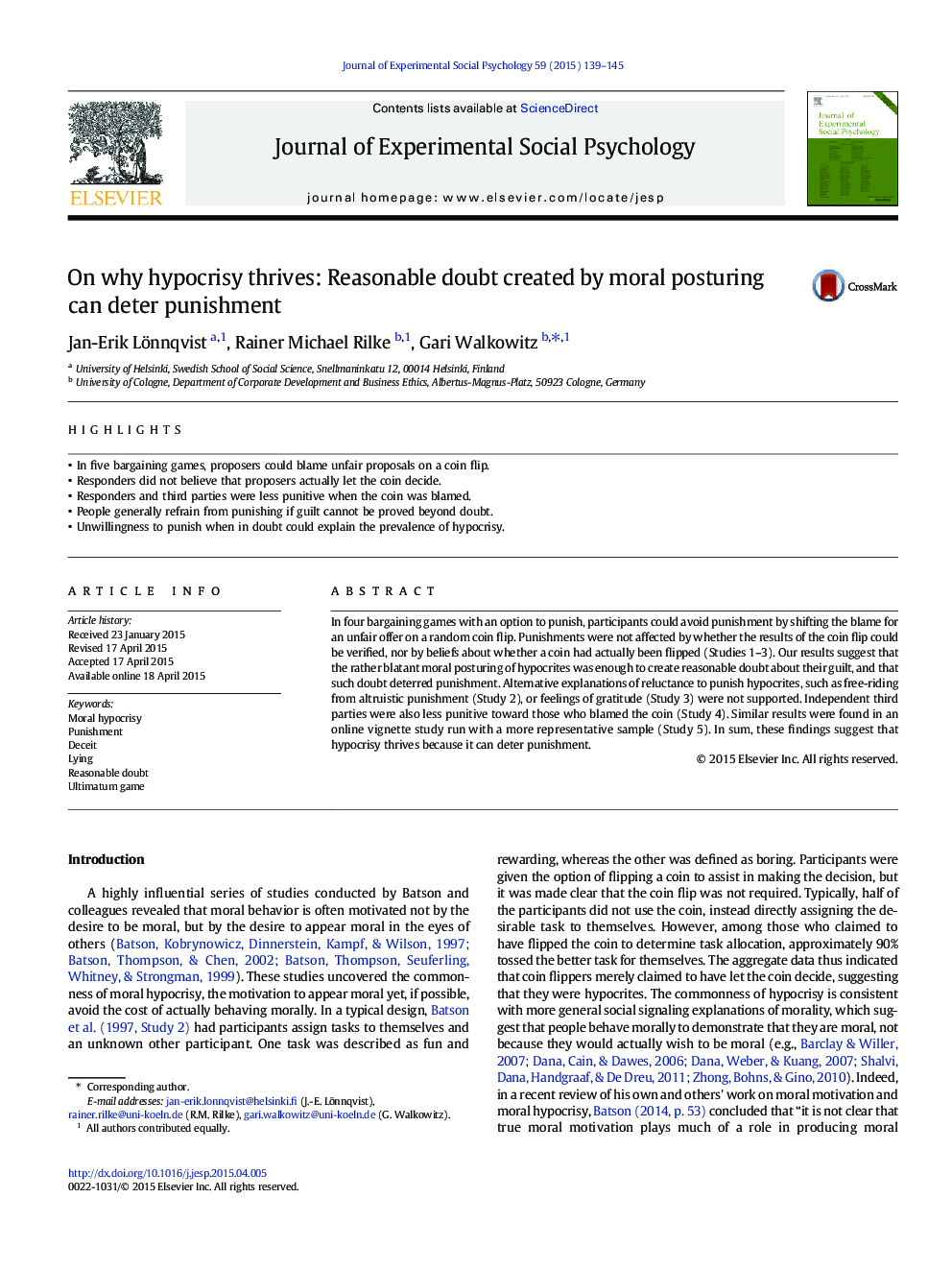| کد مقاله | کد نشریه | سال انتشار | مقاله انگلیسی | نسخه تمام متن |
|---|---|---|---|---|
| 947714 | 1475864 | 2015 | 7 صفحه PDF | دانلود رایگان |
• In five bargaining games, proposers could blame unfair proposals on a coin flip.
• Responders did not believe that proposers actually let the coin decide.
• Responders and third parties were less punitive when the coin was blamed.
• People generally refrain from punishing if guilt cannot be proved beyond doubt.
• Unwillingness to punish when in doubt could explain the prevalence of hypocrisy.
In four bargaining games with an option to punish, participants could avoid punishment by shifting the blame for an unfair offer on a random coin flip. Punishments were not affected by whether the results of the coin flip could be verified, nor by beliefs about whether a coin had actually been flipped (Studies 1–3). Our results suggest that the rather blatant moral posturing of hypocrites was enough to create reasonable doubt about their guilt, and that such doubt deterred punishment. Alternative explanations of reluctance to punish hypocrites, such as free-riding from altruistic punishment (Study 2), or feelings of gratitude (Study 3) were not supported. Independent third parties were also less punitive toward those who blamed the coin (Study 4). Similar results were found in an online vignette study run with a more representative sample (Study 5). In sum, these findings suggest that hypocrisy thrives because it can deter punishment.
Journal: Journal of Experimental Social Psychology - Volume 59, July 2015, Pages 139–145
